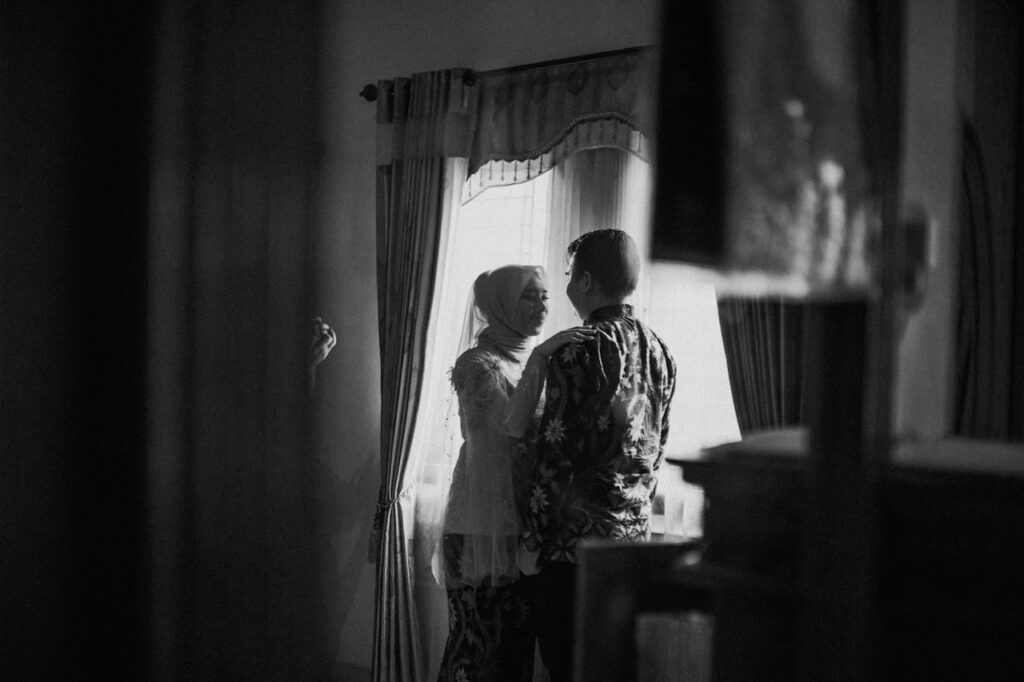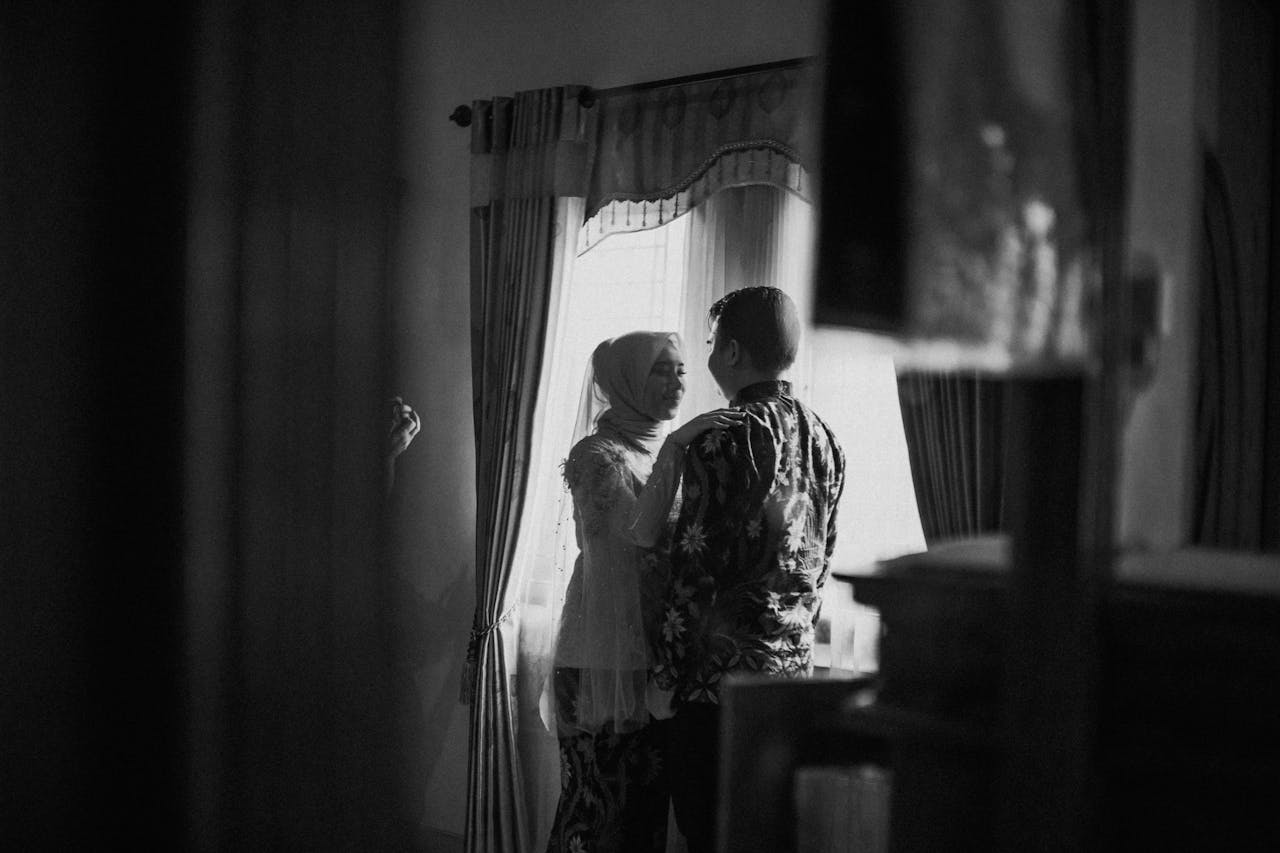Rights of a Muslim Wife: A Path to Equality and Respect
Islamic teachings provide clear guidelines regarding marital life ranging from finding a spouse to living a happy life and divorcing rules. These teachings also include the Islamic rights of a wife to protect her dignity and well-being. These rights of a Muslim wife, which range from financial security to emotional kindness highlight the balance between responsibilities and compassion Islam encourages. This post explores the non-financial and financial rights of a woman in Islam. It emphasizes the values of mutual respect, justice, and understanding, which are the foundations of a happy and strong marriage.
Financial Rights of a Wife

Basic Needs
The Quran mandates the husband to provide for his wife’s basic needs, such as food, clothing and shelter. The Quran clearly states this obligation:
“The father (husband) must provide for the mothers (wife) and dress them according to the acceptable standards. No one is to be charged with more than their capacity …”. (Quran 2:123)
This verse emphasizes that meeting the basic needs of a woman is not an optional obligation, but rather a moral one. This verse affirms that, even when limited in means, a husband must strive to provide for his family within his ability, creating a sense of security and respect between the couple.
The Mahr
Mahr is a significant and sacred aspect of Islamic marriage. It represents one of the financial rights of a Muslim wife that a husband must give his wife at the time of marriage contract or consummation of the marriage. This gift is a symbol of the husband’s commitment and responsibility towards his wife, and it serves to honor her dignity and status within the marital union. The Quran explicitly emphasizes this right, stating,
“And give the women [upon marriage] their [bridal] gifts graciously” (Quran 4:4)
The amount and nature of the mahr can vary widely, depending on cultural practices, the couple’s financial situation, and mutual agreement between the families involved. Importantly, the mahr is a right that belongs solely to the wife; she has the freedom to use it as she sees fit, whether for personal spending, saving, or investing. Islam ensures that women are treated with honor and that their rights are upheld from the very beginning of their marital journey.
The Obligation to Spend
A husband’s duty to spend money on his wife goes beyond meeting her basic needs. This obligation covers all necessities, including food, clothing, and shelter. It is based on what the husband can afford. Islam stresses this as a duty of care and a moral obligation, regardless of whether the wife is financially well-off or not.
In a narration, Hind bint ‘Utbah (wife of Abu Sufyan) told the Prophet Muhammad that her husband did not provide enough. The Prophet replied, “On a reasonable basis only take from his wealth what you and your family need” [Al Bukhari].
The husband is responsible for providing adequately and fairly.
Suitable Living
In Islam, a comfortable and secure living environment is one of the fundamental rights of a Muslim wife. The husband is required to provide suitable housing for his wife while taking into account his financial resources and capacity. Islam stresses that a man must provide a safe, dignified, and comfortable home for his wife. Accommodation should not only be a physical home but also a place that promotes a sense of belonging and emotional safety.
Emotional Rights of a Muslim Wife
Right to Equality and Fairness
When there are multiple wives in a family, Islam requires that they be treated equally concerning time, financial support, and living conditions. A hadith from the Prophet PBUH warns a husband who shows favoritism between his wives, will be held responsible:
“If a husband is married to two women and has a preference for one of them, on the Day of Judgment he will have one side of his body slanted (as punishment for unjust treatment).” [Masnad Ahmed]

Allah also recognizes that justice in the material sense is important, even if it may be difficult to observe.
Respect and Kindness
Respect and kindness is one of the fundamental rights of a Muslim wife in Islam. Islam stresses that husbands must treat their wives with respect and kindness. Allah advises:
“…And Live with Them in Kindness …” Quran 4:19.
The Prophet Muhammad was an example of compassion and warmth with his wife. As Aisha (may Allah please her) related (Al-Bukhari, Muslim), he engaged with his wife lovingly and shared in their household activities.
Protection against Harm
Islam condemns harming others, particularly one’s spouse. It is a grave transgression to harm one’s spouse. The Prophet’s last sermon discusses the rights of a Muslim wife. It stressed the importance of treating women with respect, not inflicting them pain. In a Hadith it is mentioned:
“…If you find them doing this, you may chastise but not severely. You have a duty to provide food and clothing for them in an appropriate manner (Muslim).
Right to seek Divorce
Right to seek Khula allows a wife to request a divorce from her husband, typically in exchange for returning her Mahr or providing compensation. This process underscores the principle of fairness and equality in marriage, acknowledging that women have the right to seek an end to a relationship that no longer serves their well-being.
The Quran encourages amicable resolutions and respectful treatment during this process, emphasizing the importance of kindness even in separation. By enabling women to exercise their right to Khula, Islam affirms their autonomy and dignity, providing a pathway for them to reclaim their lives and seek a future free from discord.
Right to Sexual Fulfilment
In Islam, the right to sexual fulfillment is one of the fundamental rights of a Muslim wife in the aspect of the marital relationship, highlighting the importance of mutual satisfaction and intimacy between spouses. Both partners have the right to enjoy a healthy sexual relationship, which is seen as a means of expressing love, affection, and commitment. The Quran and Hadith emphasize the significance of fulfilling each other’s needs, encouraging open communication and understanding about desires and preferences.

This right not only contributes to emotional bonding but also serves as a vital component of a harmonious and fulfilling marriage, reinforcing the notion that sexual intimacy is a shared responsibility that strengthens the marital bond.
Conclusion
In Islam, the rights of a Muslim wife reflect a deep commitment to her well-being, which ensures she is treated with kindness and respect. These guidelines promote a loving, supportive, and just marriage environment, embodying the ideals that are at the core of Islamic teachings.







